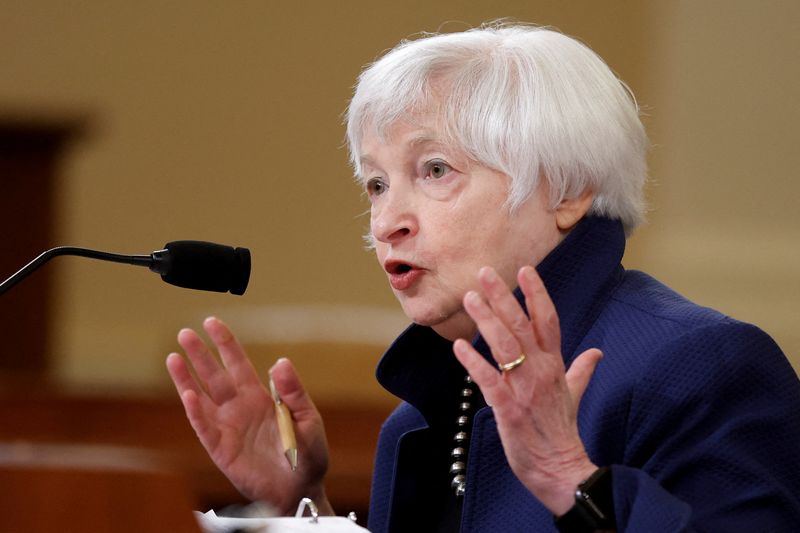Yellen heads to Asia to build support for price cap on Russian oil
2022.07.08 12:10

FILE PHOTO: U.S. Treasury Secretary Janet Yellen testifies during a House Ways and Means Committee hearing on President Biden’s proposed 2023 U.S. budget, on Capitol Hill in Washington, U.S., June 8, 2022. REUTERS/Jonathan Ernst
By Andrea Shalal
WASHINGTON (Reuters) – U.S. Treasury Secretary Janet Yellen heads to Asia next week to meet with officials from Japan, South Korea and other G20 economies as she seeks to build support for a price cap on Russian oil, the Treasury Department said on Friday.
The trip, Yellen’s first visit to the Indo-Pacific region as treasury secretary, comes amid nagging questions about how well a price cap on Russian oil could work absent the support of India and others now buying cheap Russian oil.
Yellen will hold bilateral meetings in Tokyo on July 12-13 before gathering with Group of 20 finance officials in Bali, Indonesia, from July 15-16, followed by a day of talks in Seoul on July 19, Treasury said in a statement.
The trip is part of a broader push to “reassert America’s leadership role in the region and globally,” expand support for sanctions on Russia over its war in Ukraine, and strengthen efforts to respond to an increasingly assertive China, Treasury said.
The United States and other Group of Seven rich nations – Britain, Canada, Germany, France, Italy and Japan, along with the European Union – last week agreed to explore imposing a ban on transporting Russian oil sold above a certain price in an effort to reduce Moscow’s revenues and deplete its war chest.
As the European Union prepares to impose a phased embargo on Russian oil and ban maritime insurance for any tanker that carries Russian oil, Yellen sees the cap as a way to keep oil flowing and avert a price spike that could prompt a recession.
Washington was proposing a “price exception” that would rescind the maritime insurance ban in cases where the price cap was observed, a senior Treasury official said.
Details were still being worked out on how to structure and implement such a cap, with each country needing to decide on its own approach, the official said.
Some European officials say they are skeptical about how well a cap would work, especially absent India, China and others that are buying large amounts of discounted Russia oil.
Washington was in talks with “a growing number” of countries about the cap, the second official said, citing “good progress” across the board.
“The more we talk to different countries about it, the more they understand the concept that we’re putting forward and understand the rationale,” the second Treasury official said. Failing to cap the price of Russian oil, the official said, would allow Moscow to continue to collect cash for its “war machine.”
Outreach to India would continue in coming weeks, the official added.
A separate source told Reuters last week that G7 governments were still determining which services for oil transport could be withdrawn for cargoes above the price cap and were considering direct bans of shipping services, insurance, trade finance, brokering of cargoes and other services.
Yellen planned to thank Japan for supporting the G7 initiative, Treasury said. The Kremlin last criticized Japan for adopting a “very unfriendly position” toward Russia by backing a study of the ban.








